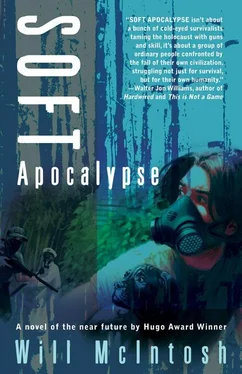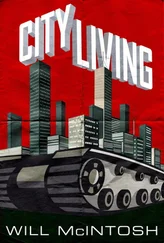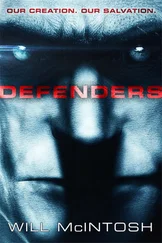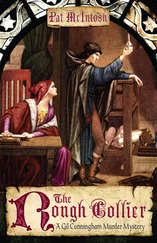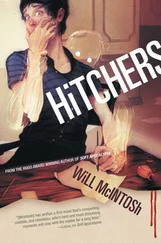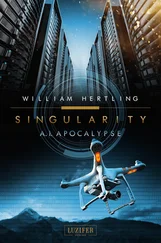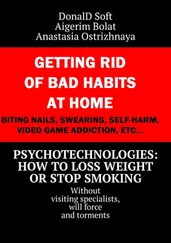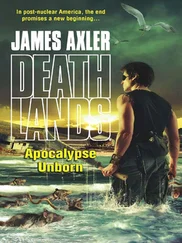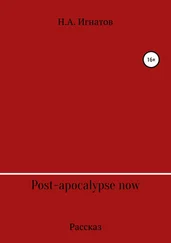“Don’t worry about it. It wasn’t your fault. She was a nut,” Colin said.
“It was my fault, because she was a nut from the beginning. I knew that, and I still shot off my mouth to get her to go out with me.”
A siren screamed in the distance.
“Okay, it is your fault,” Colin said. “But it’s not like you poisoned our dog or something. Lots of people out there are hurting people on purpose.”
“There is that, I guess. I don’t poison people’s dogs.”
“Indeed. A dog-poisoner you’re not,” Colin agreed.
The chains holding the porch swing creaked as I dragged my foot back and forth.
It hadn’t really been about Deirdre’s body, or her fame. It was because she was cool, and the cool girls never liked me. If I had my photos, I could flip to one where I’m in Forsyth Park sitting on my bike. Completely by chance, Minnie Jameson is in the background, sunning herself on a towel. Minnie had been cool. The only time she’d ever talked to me was to ask me to try to buy her cigarettes at Kroger, and when I’d refused, she’d turned up her lip (much the way Deirdre did) and called me pathetic.
“I left all my photos in her apartment,” I said. “If I give you a key, will you go over and get them for me?”
“What if she’s there?”
“That’s why I want you to go. She’d stab me if I knocked on her door and asked for those photos.”
“She’d stab me, too.”
He had a point. I was sick about my photos, though. There was no telling what she’d do with them, and they were the only photos I had from my childhood, from a time when life was normal and everyone had a place to live and an Xbox.
We sat in silence, staring out into the street, listening to the creak of the porch swing, the crickets, and the occasional gunshot.
Summer, 2029 (Eighteen months later)
A cop was doubled over, clutching a parking meter, puking on the sidewalk as a half-dozen onlookers wearing white virus masks gawked from a safe distance. Ange and I were on the bottom step of her porch, thirty feet away. Ange cursed and turned her head. I kept watching. I didn’t want to, but somehow I couldn’t turn away.
The puking went from a trickle to a sudden bursting-hydrant gush, then back to a trickle. It spattered in a six-foot swath, steam rising as the hot sidewalk boiled it. The cop made awful guttural sounds when the vomiting slowed enough, as though his intestines were about to spill onto the sidewalk as well.
“What is it?” a gray-haired woman asked.
The bald guy next to her shook his head. “I don’t know. It’s a bad one.” They took a half-step back.
The vomit turned pink, then red. There were gasps and “oh my gods” from the crowd.
The cop’s eyes bulged as the puke lost its thickish chunky quality and became smooth, bright red blood. He dropped to his knees, weaved as blood stained the front of his blue uniform a deep purple, then collapsed to the pavement.
“Jesus Christ,” Ange said as a few final spasms squeezed the cop dry. He lay still, his eyes vacant. In the distance, a siren warbled, growing closer.
We went inside. Chair, one of Ange’s housemates, had been watching through the window. A skinny, bald, bow-legged guy in his fifties stood next to him. The guy had a backpack slung over his shoulder, and he was crying. As we came in he swept his shirtsleeve across his eyes and gawked at Ange, starting at her toes and slowly climbing to her dark green eyes.
“Wow, would I like to make love to you,” he said, not a hint of flirtation in his level tone, as if he were reporting on the weather.
Ange fixed him with her best bitch stare. “Yeah, thanks, let me get back to you on that.”
“A new one,” Chair said, motioning toward the cop with his chin. “Got to be engineered. Too quick to be a natural virus.” Ange nodded. Chair was wearing shorts; I tried not to stare at the elaborate black steelwork of his long-nonfunctioning bionic legs. Even Chair was putting vanity aside in the scorching heat. Chair sighed, rotated his wheelchair in a tight circle. The skinny guy followed him toward the coffee table. His walk was loose, his arms swinging like he owned the freaking world, and he was now sporting a shitass grin.
“Who’s he?” I asked Ange. She shrugged.
“You going to introduce us to your friend?” Ange said to Chair.
“This is Sebastian,” Chair said over his shoulder. He parked across from the sofa and looked at me. “That’s about all I can say in casual company.”
Ange gave him an impatient tisk. “Jasper doesn’t know any local government officials or Jumpy-Jumps, Chair. Don’t be so fucking clandestine.”
“Don’t play it like this is no big deal, Ange. This is fucking clandestine stuff. No offense, but Jasper, you need to go.” He waved me off like a cop directing traffic.
I shrugged, headed for the door. Ange grabbed my t-shirt and tugged. “No, you’re fine. I pay rent here too.” She turned back to Chair, hands on hips. “Look, I’d trust Jasper with my life. Whatever you tell me, I’m going to tell him anyway, so whatever the big secret is, just fucking tell us, will you?”
Chair tapped the arm of his wheelchair with a dirty fingernail that badly needed trimming. “I hope you trust him with your life, and ours too, because that’s what you’re doing.” He nodded tightly. “Fine. Sebastian is a delivery man from the Science Alliance in Atlanta.” He raised his eyebrows significantly behind delicate eyeglasses that looked absurd on his mastiff head.
I’d read about the Science Alliance—an underground group of smart people who’d gone rogue. They were aggressively taking matters into their own hands, trying to tackle some of the world’s many problems. The federal government disliked them almost as much as the Jumpy-Jumps. Suddenly I had doubts about wanting to stay and hear what the guy had to say.
“Shit, you’re kidding,” Ange said. “You don’t look like an eco-terrorist.”
“I don’t feel like an eco-terrorist,” Sebastian said, shrugging.
Ange dropped onto the couch and swung her legs onto the coffee table, forgetting that one of the table legs was broken. It collapsed into a three-point stance. “Shit,” she whispered. Uzi trotted into the room, hopped on the couch next to her, circled a couple of times and dropped like a stone, pushing his ass right up against her. I sat next to Uzi. The couch was coated with dog hair
“You know,” I said. “If you pull something and get caught, you won’t go to jail; the cops’ll just drag you into the street and shoot you.”
“No doubt,” Chair said. “The stakes are high.”
“The potential costs are high,” I persisted. “I don’t get how the benefits match those costs. What do you think you’re going to accomplish?”
“The benefit is saving two billion lives, maybe three. Is that worth risking your life? About four billion people are going to die if things stay business as usual. If we can do our part to cut that in half, is it worth the risk?”
“We don’t know for sure that billions of people are going to die,” Ange said.
“Yeah, we do,” Chair said. “For sure.”
“We do,” Sebastian chimed, nodding.
“It’s all based on stochastic models,” Ange said. “It’s incredibly speculative.”
Chair glared at her. “How many times do scientists have to be right before people give them a little credit? And you of all people, about to get your doctorate, should have some faith in them.” He snared the remote from the arm of the couch, stabbed the power button. CNN came on. The president was having a news conference. The president always seemed to be having a news conference; I couldn’t imagine when he had time to run the country, or what was left of it.
Читать дальше
